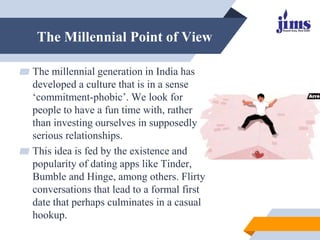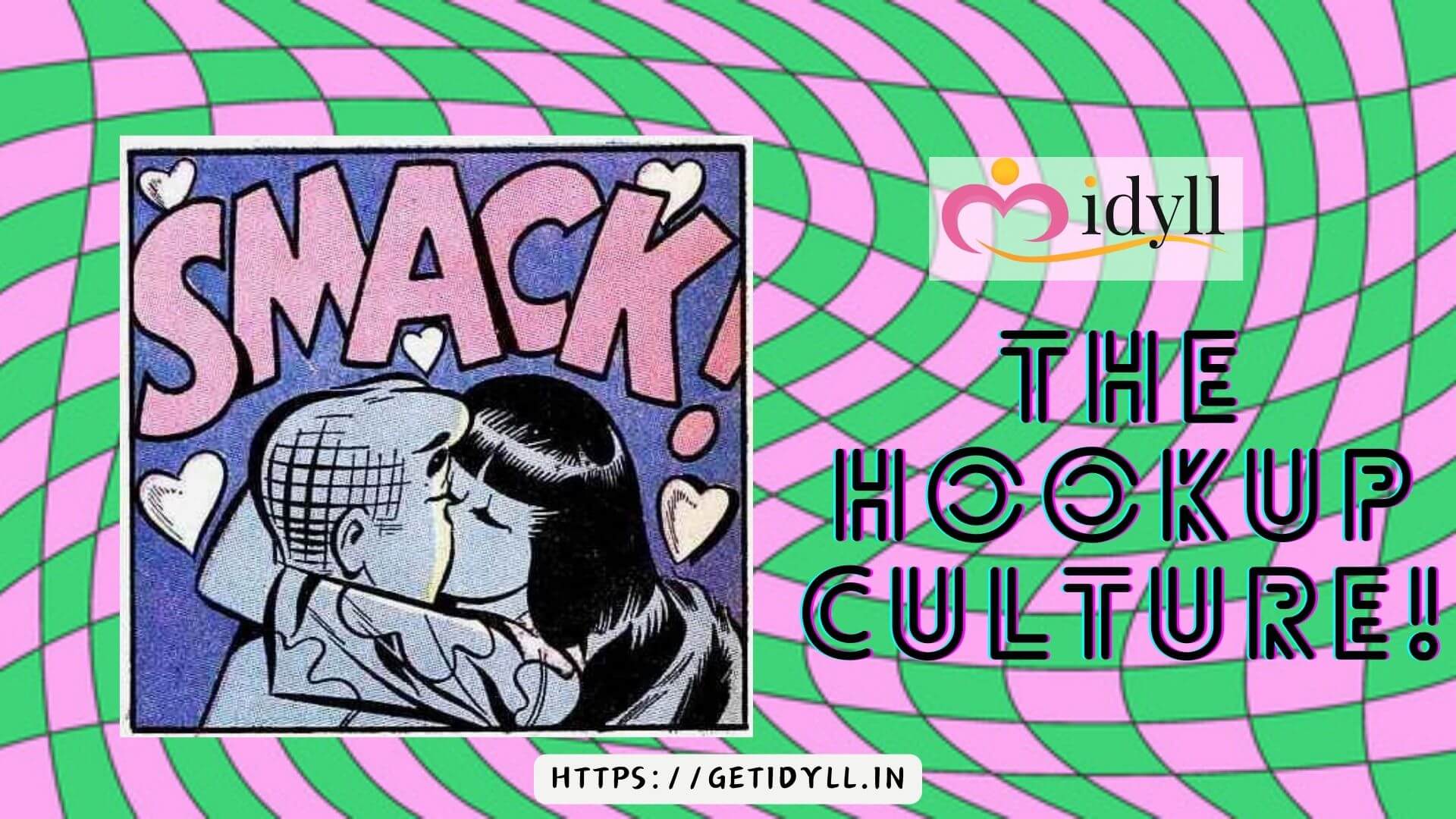
The Evolution of Dating Culture
Traditional Dating Vs. Hookup Culture
The landscape of dating has transformed significantly over the decades. Traditional dating emphasized relationship-building through planned outings, meaningful conversations, and commitment. In contrast, hookup culture prioritizes casual encounters with little to no emotional investment.
For instance:
- Traditional Dating: Dinner dates, family introductions.
- Hookup Culture: Hookups through bars, apps, or parties.
This shift reflects changing societal norms about relationships and intimacy.
Factors Influencing the Shift
Several factors have catalyzed this evolution in dating culture:
- Technological Advancements: Dating apps and social media have increased accessibility, promoting casual interactions.
- Changing Gender Roles: Greater sexual liberation has encouraged diverse dating dynamics.
- Cultural Trends: A growing focus on individualism and self-exploration fosters non-traditional connections.
As these influences intertwine, they shape a dating culture that reflects contemporary values and attitudes towards relationships.

Characteristics of Hookup Culture
Definition and Meaning
Hookup culture primarily revolves around casual sexual encounters without the expectation of a long-term relationship. It often emphasizes physical attraction over emotional connection.
To give it more context:
- Casual Interactions: Meetings occur without extensive prior engagement.
- Minimal Commitment: Emotional detachment is a common theme.
This culture empowers individuals to explore their desires while navigating the complexities of modern relationships.
Role of Technology in Modern Dating
Technology significantly fuels the rise of hookup culture, bringing a whole new level of convenience and anonymity.
Consider these points:
- Dating Apps: Platforms like Tinder and Bumble simplify finding partners for casual encounters.
- Social Media: Sites allow for flirtation and connection without physical proximity.
- Instant Messaging: Quick communication fosters immediate arrangements for meet-ups.
As technology continues to evolve, so does the landscape of dating, encouraging a new generation to embrace this more casual approach to relationships.

Effects of Hookup Culture on Relationships
Emotional Impact
Engaging in hookup culture can lead to a range of emotional experiences. While some find liberation and empowerment, others may encounter feelings of loneliness and insecurity.
For instance:
- Euphoria: The thrill of new encounters is exhilarating for many.
- Disillusionment: Some individuals may feel empty or rejected after casual encounters.
These contrasting emotional responses highlight the complexity of navigating modern relationships.
Challenges in Establishing Meaningful Connections
Hookup culture introduces unique challenges for those seeking deeper connections. The focus on casual interactions can create barriers to intimacy.
Key challenges include:
- Superficial Relationships: Limited communication often prevents understanding.
- Fear of Vulnerability: Many shy away from expressing true feelings, fearing rejection.
- Misaligned Expectations: Partners may have different desires, leading to confusion or conflict.
As individuals explore hookups, they often grapple with the tension between physical attraction and the longing for emotional closeness, further complicating their relationships.

Gender Dynamics in Hookup Culture
Disparities and Stereotypes
In hookup culture, gender dynamics create notable disparities and reinforce stereotypes that can affect experiences for both men and women.
For example:
- Men: Often praised for their sexual conquests, which can encourage riskier behaviors.
- Women: Sometimes face judgment or stigma for participating, which can lead to feelings of shame.
These stereotypes perpetuate a culture where expectations differ significantly based on gender, impacting how individuals navigate their choices.
Intersectionality in Modern Dating
Understanding gender dynamics within hookup culture also requires examining intersectionality. Factors like race, sexuality, and socioeconomic status further complicate dating experiences.
Consider these intersections:
- Race: Individuals from different racial backgrounds may encounter unique biases within hookup culture.
- Sexual Orientation: LGBTQ+ individuals may face exclusion or different societal expectations compared to heterosexuals.
These intersections reveal the multifaceted nature of modern dating, urging a broader understanding of how identity shapes experiences within hookup culture. Ultimately, recognizing these complexities fosters more inclusive conversations about relationships and intimacy.

Addressing Consent and Communication
Importance of Clear Communication
In the realm of hookup culture, clear communication is crucial for ensuring positive experiences and mutual understanding. When both parties express their intentions, it minimizes misunderstandings and fosters trust.
For instance:
- Setting Boundaries: Discussing personal limits helps prevent unwanted situations.
- Expressing Desires: Sharing what one hopes to gain from the interaction enhances connection.
Open dialogue creates a safer and more respectful environment for everyone involved.
Navigating Consent in Casual Encounters
Navigating consent in casual encounters is vital, yet can sometimes feel daunting. Consent should always be enthusiastic and ongoing, ensuring that all parties feel comfortable and respected.
Important considerations include:
- Empowerment: Encourage both partners to voice their comfort levels.
- Revisiting Consent: Check in as the encounter progresses to ensure that boundaries remain respected.
- Educating on Signals: Understanding non-verbal cues can provide additional insight into a partner’s comfort.
By prioritizing consent and fostering open communication, individuals can create more fulfilling and respectful interactions, ultimately enhancing their experiences within hookup culture.

Impact of Hookup Culture on Mental Health
Psychological Consequences
The prevalence of hookup culture can have significant psychological effects on individuals. While some may enjoy the thrill, others might experience emotional distress, anxiety, or feelings of inadequacy.
Common issues include:
- Depression: The disconnection inherent in casual encounters can lead to loneliness.
- Low Self-Esteem: Constant comparison and societal expectations contribute to negative self-image.
These consequences highlight the need for self-awareness and support in navigating intimate relationships.
Coping Strategies and Support Systems
To mitigate the mental health impacts of hookup culture, effective coping strategies and support systems are essential.
Consider these approaches:
- Maintaining Balance: Engage in activities that foster self-worth beyond romantic interests—hobbies, friendships, or career goals.
- Seeking Support: Talking to close friends or therapists can provide necessary validation and guidance.
- Setting Personal Limits: Defining what feels comfortable in casual encounters helps manage emotional investment.
By implementing these strategies, individuals can cultivate healthier experiences in hookup culture, fostering resilience and positive mental health amidst the complexities of modern dating.

Critiques of Hookup Culture
Societal Perspectives
As hookup culture gains prominence, it invites various critiques from different societal perspectives. Many individuals express concerns about the implications of casual encounters on emotional health and community values.
For example:
- Family Dynamics: Critics argue that hookup culture detracts from forming lasting familial and community bonds.
- Gender Norms: Some believe it perpetuates harmful stereotypes tied to masculinity and femininity.
These perspectives prompt important discussions about the potential long-term effects on society.
Discussions on Morality and Ethics
Discussions surrounding hookup culture often delve into morality and ethics, raising questions about consent, respect, and the nature of relationships.
Key considerations are:
- Moral Relativism: With varied beliefs, what is acceptable for one might seem unethical to another, resulting in cultural divides.
- Respect in Interactions: Emphasizing the need for ethical behavior in casual encounters speaks to broader societal values.
By examining these critiques, society can engage in meaningful conversations about how to navigate the complexities of hookup culture while upholding shared values around relationships and respect.

The Future of Dating Landscape
Trends and Predictions
As we move forward, the dating landscape continues to evolve, influenced by changing attitudes and technological advancements.
Some emerging trends include:
- Virtual Date Experiences: With remote interactions becoming commonplace, virtual dates may grow in popularity.
- Increased Focus on Mental Health: Awareness around mental health may lead to more discussions about emotional well-being in relationships.
These trends indicate a shift towards more intentional and conscious dating practices.
Shaping Healthy Dating Habits
To foster a healthier dating environment, individuals can adopt practices that prioritize authenticity and communication.
Consider these approaches:
- Setting Clear Intentions: Being honest about what one seeks—whether it’s casual dating or something serious—helps align expectations.
- Prioritizing Self-Reflection: Understanding personal values and emotional needs can inform better choices in partners.
As the dating landscape continues to change, nurturing healthy habits will be crucial for building fulfilling relationships that resonate with personal values and overall well-being.
